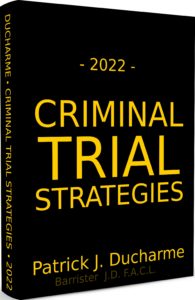It is generally, with few exceptions, improper to ask leading questions of witnesses called by the lawyer asking the questions. An improper leading question is one that suggests the answer to the witness who is testifying. Another form of prohibited leading questions, less common, but just as inappropriate, is for the questioner to ask his witness to assume a fact or a set of circumstances that is inaccurate or not accepted as valid by the opposition, or, is a matter of controversy between the two sides.
The power of leading questions is generally reserved for lawyers in cross-examination. Cross-examination not only permits leading questions, leading questions are preferred. Leading questions permit the cross-examiner to discredit or impeach the testimony of a witness. They may highlight or support some evidence favourable to the side of the cross- examiner, or, provide some independent evidence favourable to the position of the cross-examiner. The goal is generally to challenge and/or to weaken the case of opposing counsel.
While the above objectives are valuable, their most important value is that leading questions serve the ultimate goal of cross-examination: to tell a narrative so effectively that the trier of fact must feel constrained, however reluctantly, to favour the cross-examiner’s side of the narrative over that of the opposition.
The above is the an excerpt of Patrick J Ducharme’s book, Criminal Trial Strategies, available at Amazon or in bulk through MedicaLegal Publishing.
Read or listen to the Preface and Introduction and subscribe to Patrick Ducharme’s Youtube Channel.

